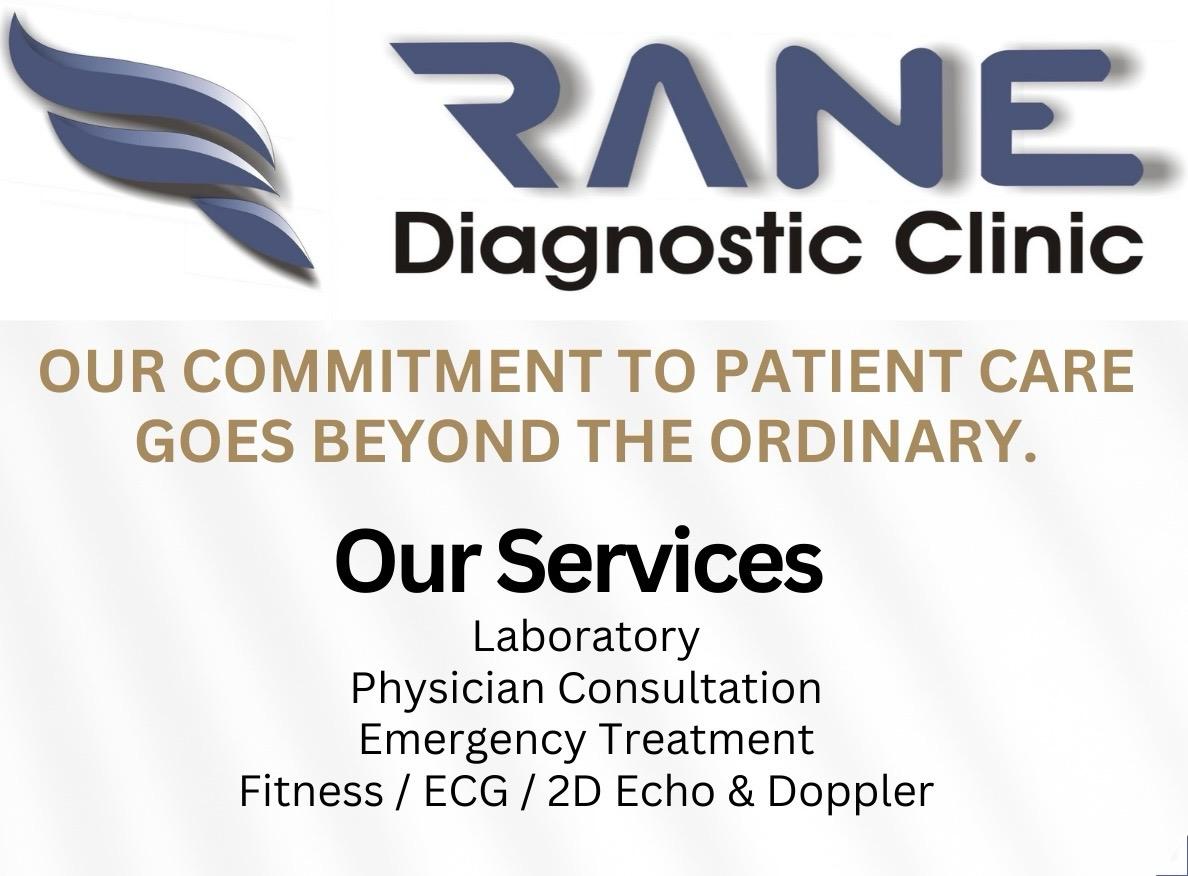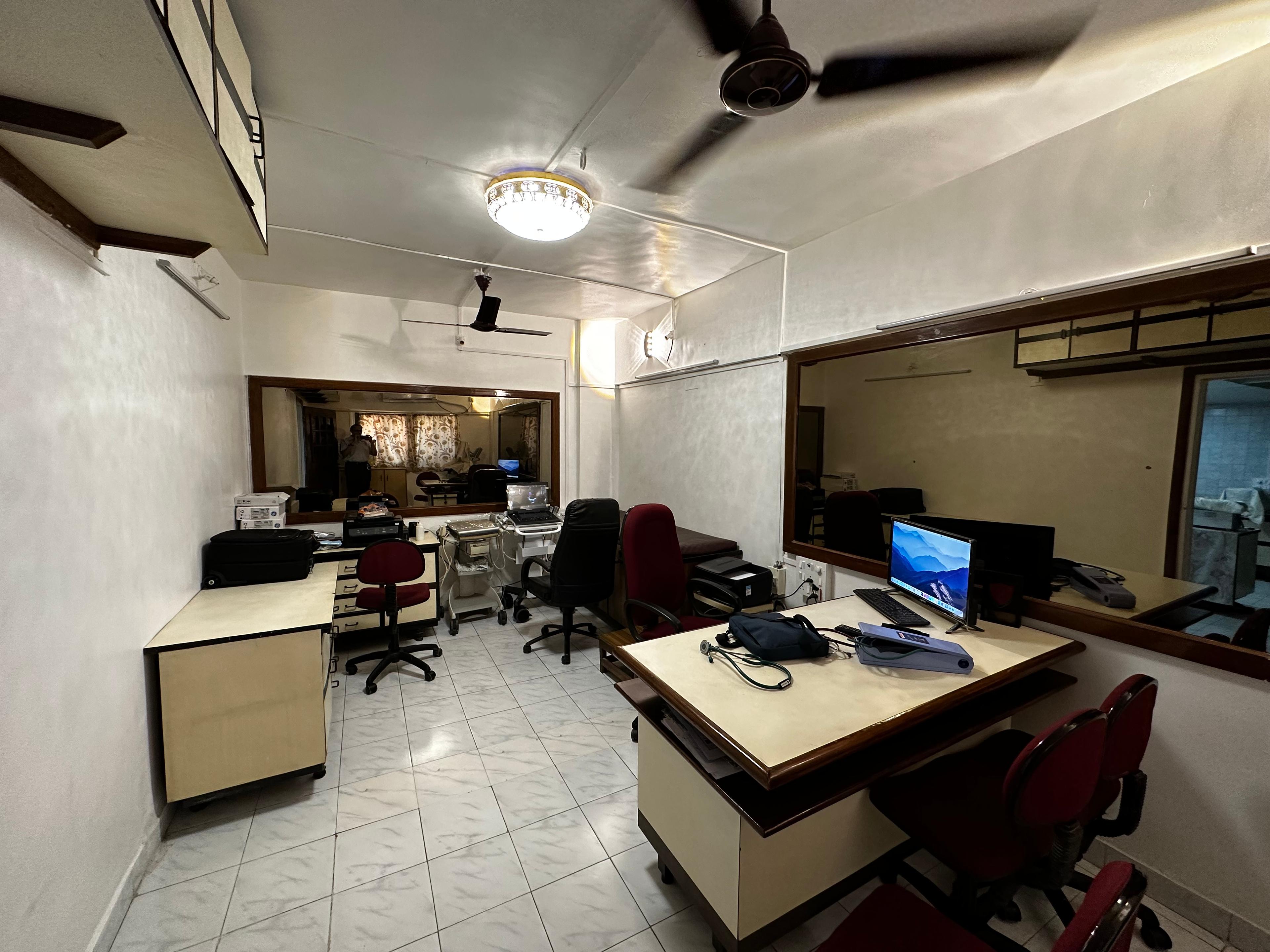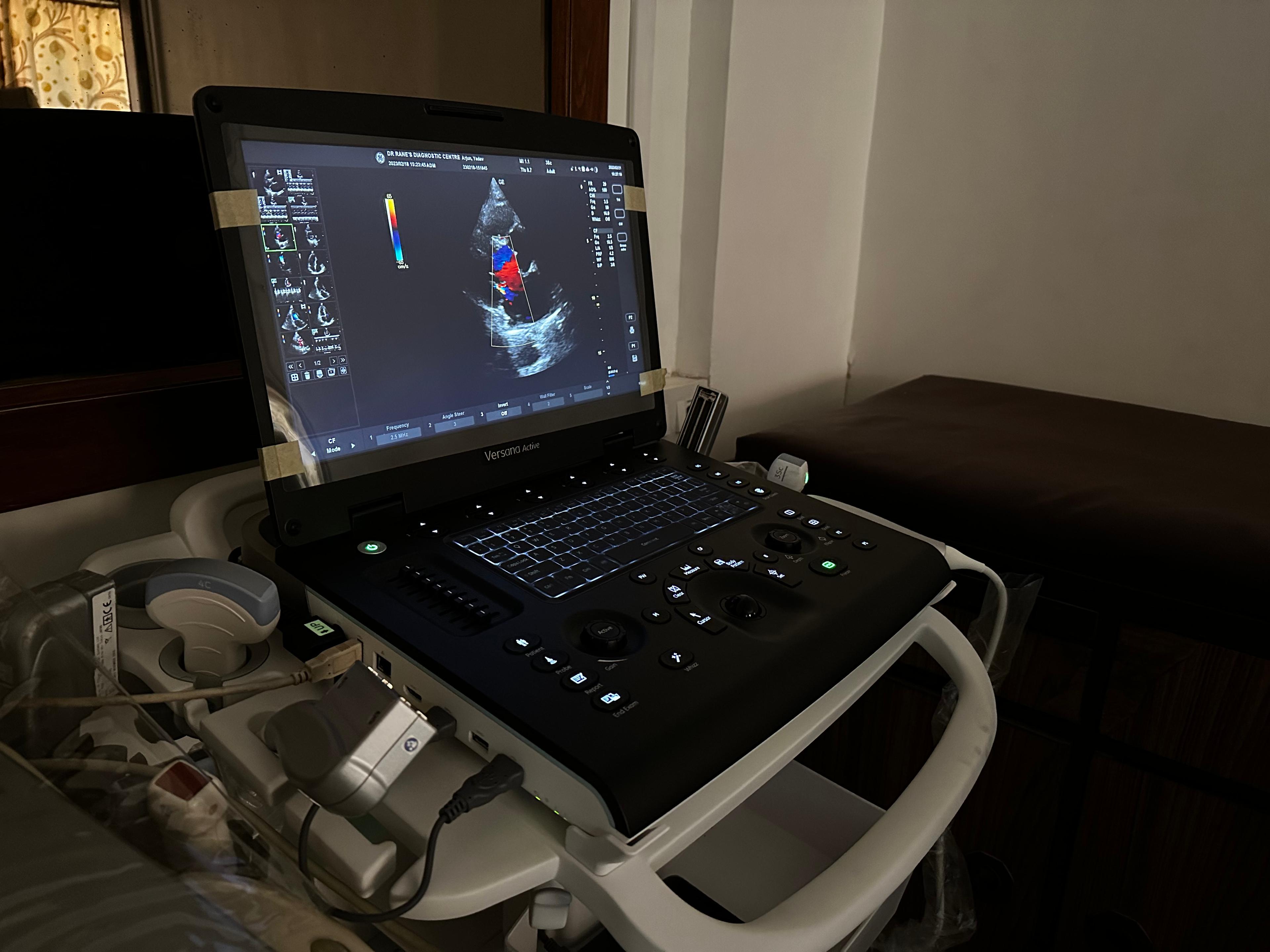Dr. Tushar Rane
Internal Medicine Physician
About the Doctor
Dr. Tushar Rane
Internal Medicine Physician
19 years of experience
Dr Tushar Rane is a post graduate in the field of Medicine from GMC & JJ Group of Hospitals, Mumbai, with over 17 years of experience in the field in the treatment of Diabetes, Hypertension, Thyroid disorders, Heart Disease in addition to various Gastrointestinal disorders like Irritable Bowel Syndrome, Gastric Ulcers/Gastritis. Also specialised in various procedures like Central Line/Arterial Line placement, Pleural/Ascitic tapping, Lumbar puncture, Intubation & Ventilatorey support. In addition he specialises in Transthoracic & Colour Doppler Echocardiography (2D Echo).
Rane Diagnostic Clinic
1st Floor, Plot no 37, Dhanlaxmi Apartments, Landmark : Rane Hospital, Pestom Sagar Rd Number 2, Mumbai, Maharashtra 400089, Plot no 37, 1st Floor, Rane Hospital, Pestom Sagar, Road no 2, Chembur, Plot no 37, 1st Floor, Rane Hospital, Pestom Sagar, Road no 2, Chembur, mumbai, maharashtra, India
wheelchair accessible elevator
wheelchair accessible entrance
wheelchair accessible restroom
wheelchair accessible seating
gender neutral restroom
restroom
My timings at the clinic
03:00 PM - 03:30 PM
03:00 PM - 03:30 PM
03:00 PM - 04:00 PM
06:00 PM - 09:00 PM
08:00 PM - 09:00 PM
03:00 PM - 03:30 PM
03:00 PM - 03:30 PM
03:00 PM - 04:00 PM
06:00 PM - 09:00 PM
08:00 PM - 09:00 PM
03:00 PM - 03:30 PM
03:00 PM - 03:30 PM
03:00 PM - 04:00 PM
06:00 PM - 09:00 PM
08:00 PM - 09:00 PM
03:00 PM - 03:30 PM
03:00 PM - 03:30 PM
03:00 PM - 04:00 PM
06:00 PM - 09:00 PM
08:00 PM - 09:00 PM
03:00 PM - 03:30 PM
03:00 PM - 03:30 PM
03:00 PM - 04:00 PM
06:00 PM - 09:00 PM
08:00 PM - 09:00 PM
03:00 PM - 03:30 PM
03:00 PM - 03:30 PM
03:00 PM - 04:00 PM
06:00 PM - 09:00 PM
08:00 PM - 09:00 PM
Unavailable
Apollo Spectra Hospital
OPD No 6, Main Gate, Ujagar compound Consultation Chamber, in front of Deonar Bus Depot, off Sion - Trombay Road, Chembur, Mumbai, Maharashtra 400088, mumbai, maharashtra, India


Patient is said to have Diabetes, when they suffice an 1 or more of the below given criteria :
- Symptoms of Diabetes + RBS => 200 mg/dl
- FBS => 126 mg/dl
- HbA1c level => 6.5 mg/dl
- 2 hour plasma sugar => 200 mg/dl during an OGTT.
Stress Test or TMT, is a test used as a screening tool for coronary artery disease mainly (Blockages). This is basically an ECG taken when your heart is put to stress by making ou walk on a treadmill. A positive Stress Test indicates a higher possibility of a significant coronary artery disease (blockage in the coronaries), which may need further evaluation.
2D Echo on the other hand is an ultrasound of the Heart, which tells us about the structure & function of the heart, & the blood flow within the heart. It will not show blockages within the coronary blood vessels, although it will sometimes reveal Regional wall motion abnormalities (abnormality in contractility of the heart wall) which can predict an underling significant Coronary artery disease (blockage).
Both tests have their own significance & indications, so none is superior to the other.
As per the Indian Society of Hypertension the stages are as follows :
Normal : Systolic - 120-129; Diastolic - 80-84
Pre Hypertension : Systolic - 130-139; Diastolic - 85-89
Grade 1 : Systolic - 140-159; Diastolic - 90-99
Grade 2 : Systolic - 160-179; Diastolic - 100-109
Grade 3 : Systolic - 180 or higher; Diastolic - 110 or higher
Infections (Bacterial,viral,fungal)
Inflammatory conditions (such as Rheumatoid arthritis)
Heat exhaustion
Certain medications
Immunizations, Cancer
Autoimmune diseases
Elevated body temperature (above 100.4F or 38C)
Chills & shivering
Headache, bodyache
Loss of appetite
Dehydration
Generalised weakness
Washing hands regularly
Avoiding close contact with sick individuals
Keeping up to date with vaccinations
Practicing good hygiene
Maintaining a healthy lifestyle and having a good immunity by eating healthy food, exercising regularly
Rectal temperatures are the most accurate
Forehead temperatures are the next most accurate
Oral and ear temperatures are also accurate if done properly
Temperatures measured in the armpit are the least accurate
Fish : Salmon, Sardines, Mackerel are rich sources of Omega 3 Fatty acids & Proteins.
Eggs : Eggs are rich in protein, excellent source of Potassium. Egg yolk is beneficial as it contains Biotin which seems to help in Insulin production.
Whole Grains : Rich in fibre, and also make us feel full. Substitute white bread and white rice with brown bread & brown rice, and also include Oats in your diet.
Green Leafy Vegetables : Dark green vegetables like Spinach, Brocolli, Fenugreek (Methi) have a Low Glycaemic Index, High fibre content & are rich in proteins, vitamins & minerals. Carrots are rich sources of B carotene,fibre,Vit K,Potassium & anti oxidants.
Fruits to eat : Apple, Guava, Orange, Papaya, Mosambi, Kiwi, Star fruit, Apricot.
Fruits to avoid : Banana, Mango, Custard Apple (Sitafal), Chikoo, Jackfruit.
Other Foods for Diabetics : Chia seeds, Flax seeds, Turmeric, Ginger & Garlic, Yoghurt, Cinnamon, Clove, Nuts ( Almonds, Cashews, Hazelnuts, Pista, Walnut ).
- Meat, fish, and poultry.
- Eggs: whole eggs, egg whites, egg yolks
- Dairy: unflavored dairy products, including, plain milk, yogurt, and cheese
- Fruits: berries, melons, pineapples, bananas, oranges, pears, peaches, etc.
- Vegetables: broccoli, tomatoes, onions, peppers, mushrooms, asparagus, carrots, potatoes, etc.
- Grains: quinoa, rice, buckwheat, tapioca, sorghum, corn, millet, amaranth, arrowroot, teff, oats (if they’re labeled gluten-free)
- Starches and flours: potato flour, cornstarch, corn flour, chickpea flour, soy flour, almond meal or flour, coconut flour, tapioca flour
- Nuts and seeds: almonds, walnuts, pistachios, cashews, hemp seeds, chia seeds, flaxseeds, etc.
- Spreads and oils: vegetable oils, olive oil, coconut oil, butter, margarine, etc.
- Herbs and spices: black pepper, turmeric, oregano, thyme, rosemary, parsley, cilantro, etc.
- Beverages: most beverages, except for beer (unless it’s labeled gluten-free)










